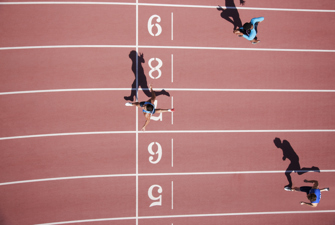New report documents governance standards in anti-doping in 11 countries
Researchers, athlete representatives, and anti-doping experts have developed a tool named the National Anti-Doping Governance Observer (NADGO). A new report reveals the results from benchmarking 11 national anti-doping agencies and explains the methodology.
After almost two and a half years of cooperation, discussion, and research, the partners behind the National Anti-Doping Governance Observer (NADGO) project now launch a ground-breaking benchmarking tool that allows national anti-doping agencies worldwide to analyse and develop their governance.
The tool is presented and explained in a report published 30 June 2021 that also shows the results from benchmarking 11 national anti-doping agencies, also called NADOs, eight from Europe and three from other continents.
The project was enabled by a €217,000 grant from the Erasmus-programme offered by the European Union. It set out in early 2019 to
- map the current structures, practices, challenges and weaknesses of governance in the field of anti-doping
- develop a code of good governance and a tool to evaluate the performance of NADOs on good governance
- create networks and set up workshops on good governance for the wider community of NADOs
The research was carried out by experts from the Catholic University of Leuven, the German Sport University Cologne, University of Warsaw, and University of Lisbon, in a process coordinated by Arnout Geeraert from KU Leuven. They received input and advice from five NADOs - Anti Doping Denmark, NADA Germany, Polish Anti-Doping Agency, Slovak Anti-Doping Agency, Sport Ireland - and the international organisation for anti-doping agencies, iNADO.
Last, but not least, representatives from EU Athletes and Fair Sport (represented by Global Athlete) made sure the athletes’ voices were heard.
Play the Game acted as the coordinator, and a special parliamentary grant from Denmark to Play the Game made it possible to benchmark another six NADO’s from Bulgaria, Brazil, Kenya, Norway, Portugal, and India.
“We believe this profound research can deliver insight and inspiration to all anti-doping officers who wish to improve their organisations,” says Jens Sejer Andersen, international director of Play the Game.
The tool and instructions for how to use it are now put at the free disposal of all interested stakeholders and can be found at Play the Game's website.
Although the project has formally ended, the discussions will continue. After the summer season, Play the Game will publish a comparative analysis based on the data from 11 countries conducted by Professor Jürgen Mittag from the German Sport University Cologne.
If you are impatient, you do not need to wait that long to learn about the preliminary results of comparing the state of governance in the 11 NADOs. The presentations and discussions at NADGO’s public webinar in May are available online – click in and learn what leading anti-doping personalities like David Howman, former Director General of WADA, and Richard H. McLaren, lawyer and investigator, have to say about the governance of anti-doping.

